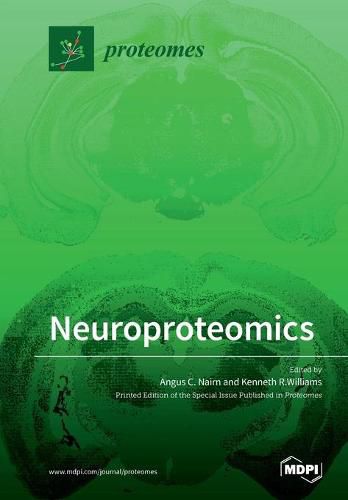Readings Newsletter
Become a Readings Member to make your shopping experience even easier.
Sign in or sign up for free!
You’re not far away from qualifying for FREE standard shipping within Australia
You’ve qualified for FREE standard shipping within Australia
The cart is loading…






This title is printed to order. This book may have been self-published. If so, we cannot guarantee the quality of the content. In the main most books will have gone through the editing process however some may not. We therefore suggest that you be aware of this before ordering this book. If in doubt check either the author or publisher’s details as we are unable to accept any returns unless they are faulty. Please contact us if you have any questions.
The Neuroproteomics Special Issue overviews the unique challenges that must be addressed to carry out meaningful MS/proteomics analyses on neural tissues and the technologies that are available to meet these challenges. The articles on Alzheimer’s disease, addiction, and schizophrenia illustrate how MS/proteomics technologies can be used to improve our ability to diagnose and understand the molecular basis for neurological diseases. Several articles will be of interest to investigators beyond the field of neurological disorders. The review on the discovery of biofluid biomarkers of neurodegenerative dementias will be of interest to investigators searching for other disease biomarkers. Similarly, the review on the role of neuroproteomics in elucidating mechanisms of drug addiction provides an overview of the utility of MS/proteomics approaches for addressing critical questions in addiction neuroscience that should be applicable to investigators involved in virtually any area of biomedical research. Likewise, the article on developing targeted MS approaches for quantifying postsynaptic density proteins will be useful for any investigator who wishes to design targeted assays for virtually any protein. Finally, the peroxidase-mediated proximity labeling technology, described in the article on mapping the proteome of the synaptic cleft, will be of interest to investigators interested in mapping other spatially restricted proteomes.
$9.00 standard shipping within Australia
FREE standard shipping within Australia for orders over $100.00
Express & International shipping calculated at checkout
This title is printed to order. This book may have been self-published. If so, we cannot guarantee the quality of the content. In the main most books will have gone through the editing process however some may not. We therefore suggest that you be aware of this before ordering this book. If in doubt check either the author or publisher’s details as we are unable to accept any returns unless they are faulty. Please contact us if you have any questions.
The Neuroproteomics Special Issue overviews the unique challenges that must be addressed to carry out meaningful MS/proteomics analyses on neural tissues and the technologies that are available to meet these challenges. The articles on Alzheimer’s disease, addiction, and schizophrenia illustrate how MS/proteomics technologies can be used to improve our ability to diagnose and understand the molecular basis for neurological diseases. Several articles will be of interest to investigators beyond the field of neurological disorders. The review on the discovery of biofluid biomarkers of neurodegenerative dementias will be of interest to investigators searching for other disease biomarkers. Similarly, the review on the role of neuroproteomics in elucidating mechanisms of drug addiction provides an overview of the utility of MS/proteomics approaches for addressing critical questions in addiction neuroscience that should be applicable to investigators involved in virtually any area of biomedical research. Likewise, the article on developing targeted MS approaches for quantifying postsynaptic density proteins will be useful for any investigator who wishes to design targeted assays for virtually any protein. Finally, the peroxidase-mediated proximity labeling technology, described in the article on mapping the proteome of the synaptic cleft, will be of interest to investigators interested in mapping other spatially restricted proteomes.